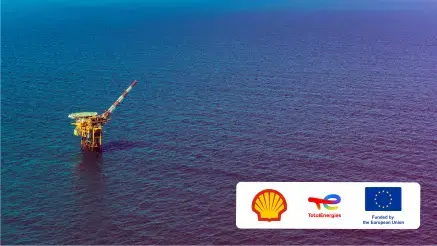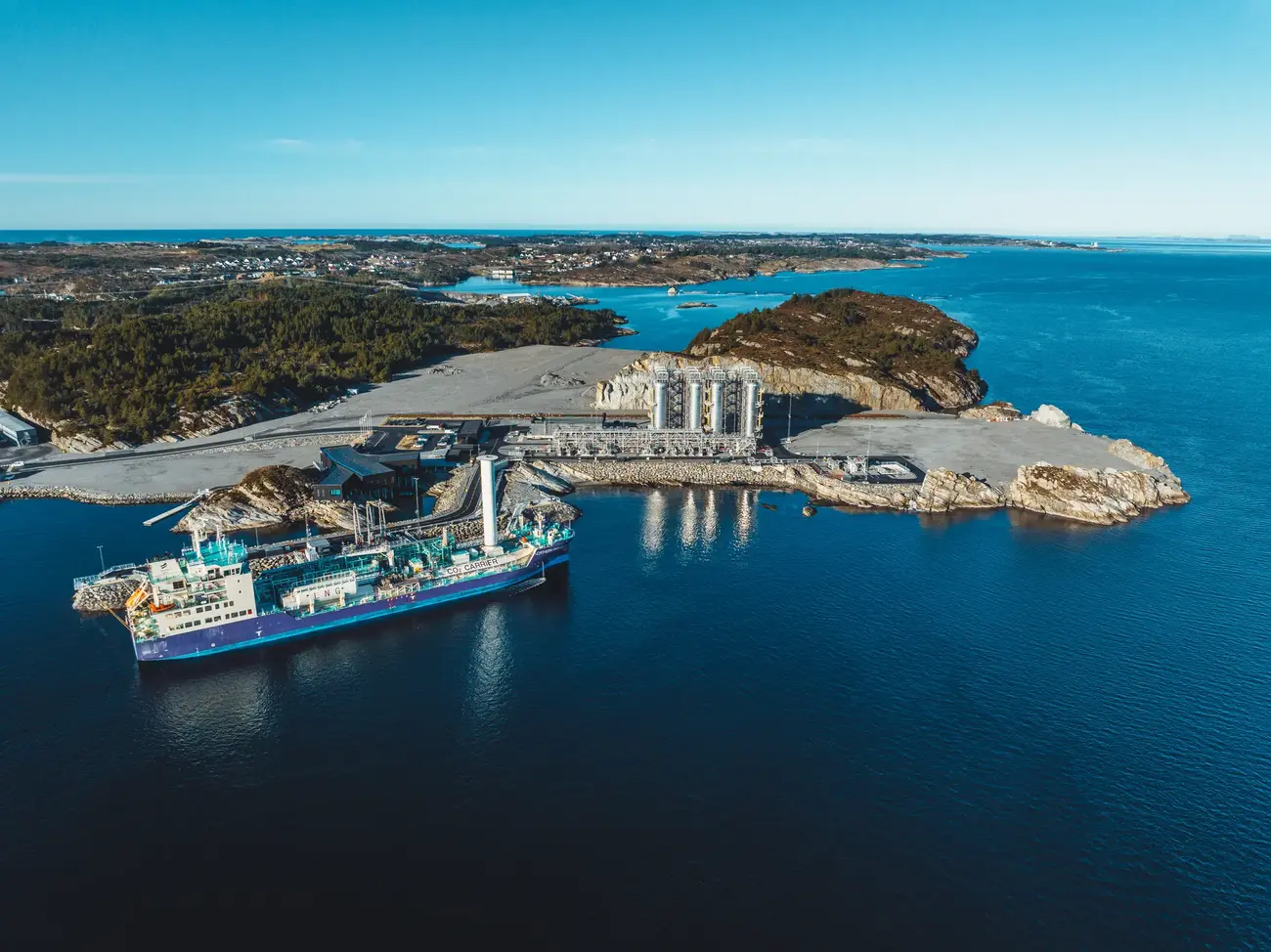
CO₂ storage under the North Sea seabed: TotalEnergies and the Aramis project
TotalEnergies is bringing large-scale CO2 reduction within reach for industry in North West Europe.
Is it possible to store CO2 on a large scale in depleted gas fields under the Dutch North Sea seabed? The answer to this question is "yes." TotalEnergies is collaborating with Shell, Energie Beheer Nederland (EBN), and Gasunie in the Aramis project to realize this Carbon Capture & Storage (CCS) system. The goal of the Aramis project is to provide a large-scale CO2 reduction solution for industrial customers in North West Europe.
TotalEnergies is working on the realization of offshore CO2 storage sites connected to the Aramis CCS infrastructure. Within the Aramis project, we contribute to the large-scale reduction of CO2 emissions by providing an effective decarbonization solution for industries such as steel and cement, refineries, waste incineration plants, and the petrochemical industry.
This contributes significantly to the reduction targets for 2030, as set out in the Dutch Climate Agreement and the European Green Deal. Aramis aims for a final investment decision in 2026 and an operational start in 2029. The Aramis infrastructure will be freely accessible to third parties, allowing other industrial customers and storage fields to be gradually added to the system.
A significant step towards Net Zero
TotalEnergies aims to achieve net zero emissions by 2050 together with society. We want to achieve this by minimizing our own emissions and capturing and storing the residual emissions from ourselves and our customers. That is why we are committed to the development of Carbon Capture & Storage (CCS) projects such as Aramis. Globally, we allocate 10% of our annual R&D budget to this topic. By 2030, we aim to store at least 10 million tons of CO2 per year.
We are currently developing a storage capacity of 5 million tons of CO2 per year in depleted gas fields in the Dutch North Sea. The realization of this will make a significant contribution to our net zero ambition.
More information

Aramis Launch Stores project
Discover how CO2 storage in depleted gas fields is helping drive CCS for a more sustainable future.

TotalEnergies CCS in the North Sea
TotalEnergies is working on leading CCS projects, particularly in the North Sea.

Discover the Aramis project
Learn more about how TotalEnergies and partners are collaborating on the Aramis project.